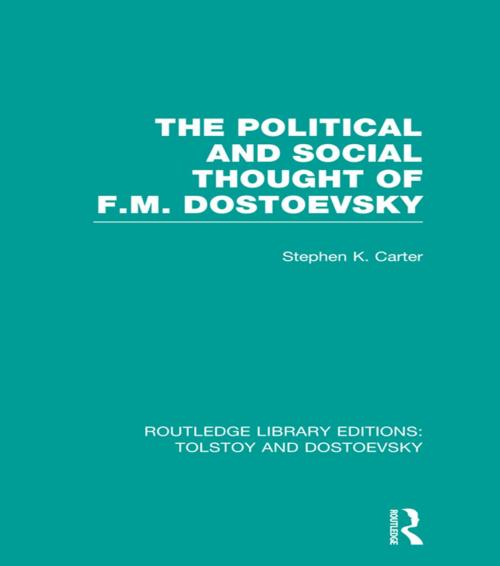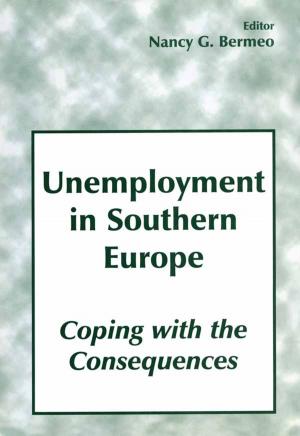The Political and Social Thought of F.M. Dostoevsky
Fiction & Literature, Literary Theory & Criticism, European, Russian| Author: | Stephen Kirby Carter | ISBN: | 9781317673934 |
| Publisher: | Taylor and Francis | Publication: | September 19, 2014 |
| Imprint: | Routledge | Language: | English |
| Author: | Stephen Kirby Carter |
| ISBN: | 9781317673934 |
| Publisher: | Taylor and Francis |
| Publication: | September 19, 2014 |
| Imprint: | Routledge |
| Language: | English |
This study concentrates on The Devils, but also places this novel in the total context of Dostoevsky’s work. Also considered is the life and work of T.N. Granovsky, who is satirised along with Turgenev in the novel, and thus offers a useful basis on which to delineate the contours of Dostoevsky’s thought. First published in 1991, the book begins from the belief that his "genius embodies much of what is typical of Russian life: his boundless vitality, his extremism, his lack of empiricism and economy. To understand Dostoevsky is therefore somehow to understand Russia."
The author concludes that Dostoevsky badly misunderstood Western liberalism, but grappled very well with the psychology of the radical terrorist. This is explained with reference to his intellectual revolution, which is seen as consisting of six stages from his early works of the 1840s.
This study concentrates on The Devils, but also places this novel in the total context of Dostoevsky’s work. Also considered is the life and work of T.N. Granovsky, who is satirised along with Turgenev in the novel, and thus offers a useful basis on which to delineate the contours of Dostoevsky’s thought. First published in 1991, the book begins from the belief that his "genius embodies much of what is typical of Russian life: his boundless vitality, his extremism, his lack of empiricism and economy. To understand Dostoevsky is therefore somehow to understand Russia."
The author concludes that Dostoevsky badly misunderstood Western liberalism, but grappled very well with the psychology of the radical terrorist. This is explained with reference to his intellectual revolution, which is seen as consisting of six stages from his early works of the 1840s.















